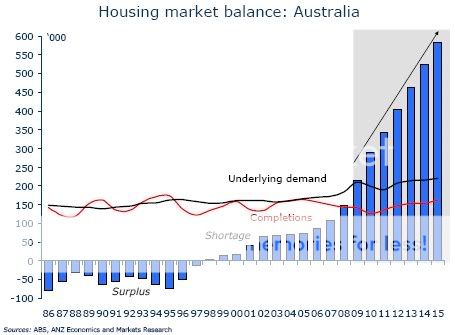WinstonWolfe, the small difference between your GNI and property growth figures would lead to housing taking up roughly twice as much of the national income in 2010 as it would in 1980.
The point that I'm trying to make, and I think Intrinsic_Value is too, is that if property prices continue to grow in excess of incomes then you end up with ludicrous outcomes over the very long term. (e.g. Shacks being worth more than the Australian economy, commuting to Melbourne from Broken Hill, etc.)
Going back to KeithJ's and Witzl's arguments, they show that it's possible for someone to climb the property ladder, even when prices are running ahead of incomes.
But looking at it from an inter-generational perspective, someone entering the market in year 25 will only afford (at best) two thirds of what the original purchaser started with. Run the sequence for a bit longer and you end up with FHBs living in shacks or Broken Hill or whatever again.
I think that an interesting question (perhaps for another thread) would be how do peoples' investment strategies stack up if the market grows at a low rate (say 3% per annum)? What if it falls in real terms?
The point that I'm trying to make, and I think Intrinsic_Value is too, is that if property prices continue to grow in excess of incomes then you end up with ludicrous outcomes over the very long term. (e.g. Shacks being worth more than the Australian economy, commuting to Melbourne from Broken Hill, etc.)
Going back to KeithJ's and Witzl's arguments, they show that it's possible for someone to climb the property ladder, even when prices are running ahead of incomes.
But looking at it from an inter-generational perspective, someone entering the market in year 25 will only afford (at best) two thirds of what the original purchaser started with. Run the sequence for a bit longer and you end up with FHBs living in shacks or Broken Hill or whatever again.
I think that an interesting question (perhaps for another thread) would be how do peoples' investment strategies stack up if the market grows at a low rate (say 3% per annum)? What if it falls in real terms?






